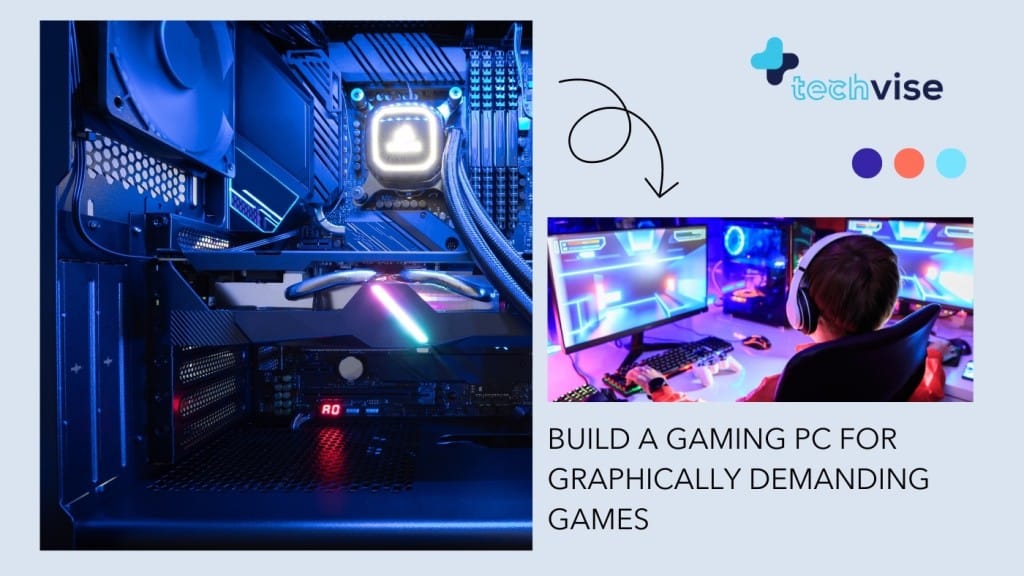There are a lot of great titles we’re anticipating to play in 2021, and of course, you’ll need a powerful gaming PC to enjoy them in their full glory. For many PC enthusiasts, building a high-end rig is a dream. For more casual PC users, you may want to dip your toes in high-end gaming, and heard that building a PC is cheaper than buying one.
So we’ve put together some useful tips on building a gaming PC for the latest games, aiming towards people who are maybe only familiar with upgrading RAM in a store-bought computer.
Choosing a Gaming PC Budget
Figuring out your budget and sacrifices you’ll need to make is an important part of building a gaming PC, unless money is no concern. For a PC that can run the latest and upcoming titles in 4K resolution on maximum graphics settings, be prepared to spend at least $2,000 acquiring all the hardware.
The current PC hardware market has been slammed with shortages and scalpers, especially for CPUs and graphics cards. This means that often you’ll find the popular, high-end graphics cards being sold for around twice their retail value by third-party sellers.
So while technically a top-end gaming PC should only cost you around $1,500 in retail value, what you end up paying is going to be based on vendor supply and demand, which hasn’t been favorable towards PC enthusiasts in quite some time.
If you can sacrifice a bit, such as scaling back to 1440p resolutions, that will save you a bit on a monitor, and how powerful of a graphics card you’ll actually need. I mean if you mostly play.io games, there’s likely little reason you’ll need a state-of-the-art RTX 3060 Ti video card.
While it’s good to future-proof your hardware and anticipate graphical upgrades, it’s financially wiser to stay within the realm of what is required for current-gen gaming. Save the money towards upgrading when it actually makes sense.
Buying Gaming PC Parts
For a complete computer build, the exact components you’ll need are:
- Processor (CPU)
- Motherboard
- Video card (GPU)
- RAM
- Storage
- Power supply unit
- Case
You’ll also want to spend a bit of time comparing monitors, and any gaming-related accessories you’ll want like mechanical keyboards, gaming mice, and headsets.
As mentioned earlier, the current market for CPUs and GPUs has been experiencing a lot of shortages, which resellers on Amazon and other retail websites are happy to take advantage of. Whenever Nvidia and Radeon announce a new batch of video cards, for example, scalpers will set bots to automatically buy up all the inventory.
This is an ongoing and well-known problem in the PC gaming community. The GeForce 1660 Ti launched at a retail price of $289, for example, and is currently being resold on Amazon for over $800.
So to find components for MSRP prices, you’re going to need a good bit of luck and patience, but it can be done. Here are a few ways.
Buy from Retail Stores
Online shopping offers the convenience factor, but also the reseller problem. Check local electronics stores, such as Micro Center or Best Buy, and even smaller computer boutiques. Their inventory will typically be at retail value. If no stock is available, ask if they plan on ordering new inventory, and when new stock might become available.
Keep an Eye on Stock Trackers
Websites like NowInStock.net scrape multiple retail websites and can show you whether items are available from online marketplaces such as Newegg, Amazon, etc. Newegg’s PC Builder page is also a great place to get started on your custom build
You can also follow communities on Reddit like r/buildapcsales, which links to computer parts that are on sale at various vendor websites. If you don’t mind a bit of swapping or paying cash for second-hand parts, you can also check out r/hardwareswap.
Finally, you can try to search local buy and sell, such as Facebook Marketplace and Craigslist. Facebook Marketplace is useful because it will not only show listings from individual resellers, but also local boutiques announcing their inventory.
Assembling the Gaming PC
If you’ve never assembled a computer before, or only have experience adding RAM and a new GPU to a prebuilt computer, it’s really not difficult. Many people are intimidated by assembling a computer because the parts seem so fragile and expensive.
It’s worth noting that computer hardware is more durable than it looks. I’ve seen GPUs be thrown across rooms, and entire computers fall off tables, and still work just fine. The actual biggest concerns are static electricity, airflow, and wiring shorts.
Assembling a PC is really exactly like assembling Legos, everything pretty much snaps into place. There are tons of YouTube videos that will walk you through it. So overall, while assembling the PC you just need to worry about standard precautions against static electricity buildup.
However, something needs to be said about PSU safety itself. I’ve seen a lot of things go wrong with PSUs such as melted SSDs from poorly made molex connectors, wires overheating and fusing together, and modular connectors melting, taking contact pins with them.
When you connect all of the wires from the PSU to your hardware, try to keep the thinner cables away from thicker cables that can produce more heat. Electrical tape is perfectly fine to use here, and I like to add little bits of electrical tape to the thinner, more sensitive wires, as well as clipping off the ends of modular connectors I won’t be using.

